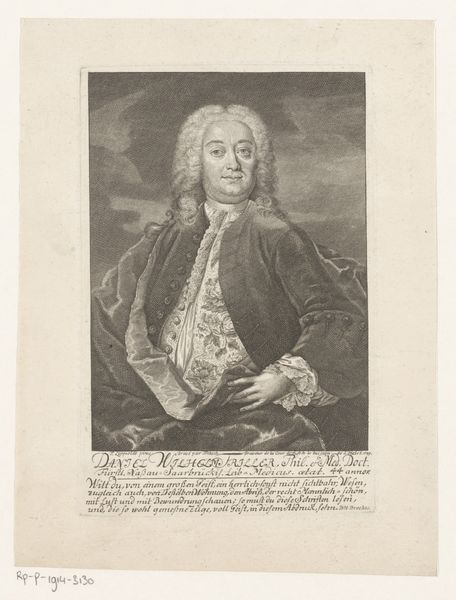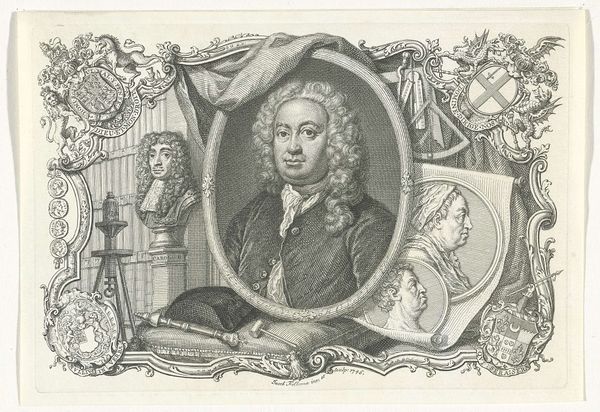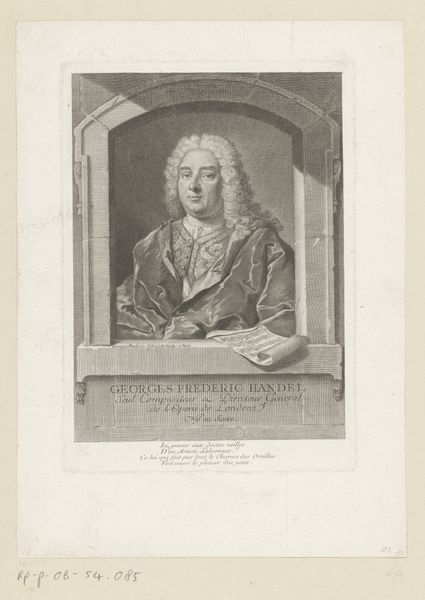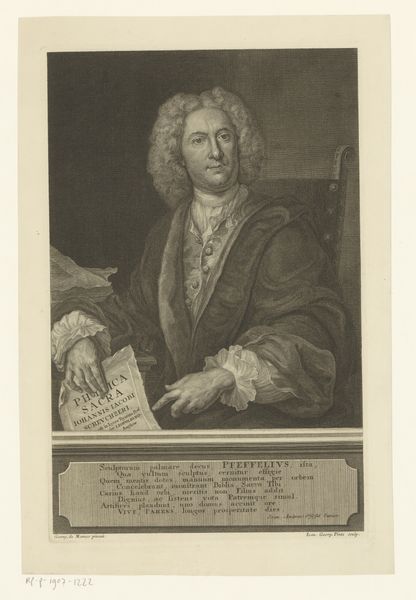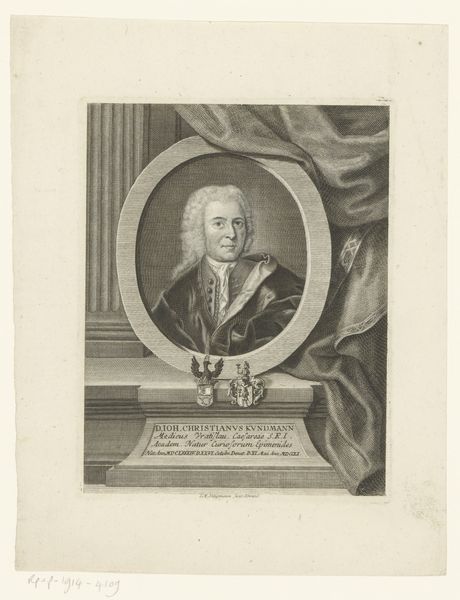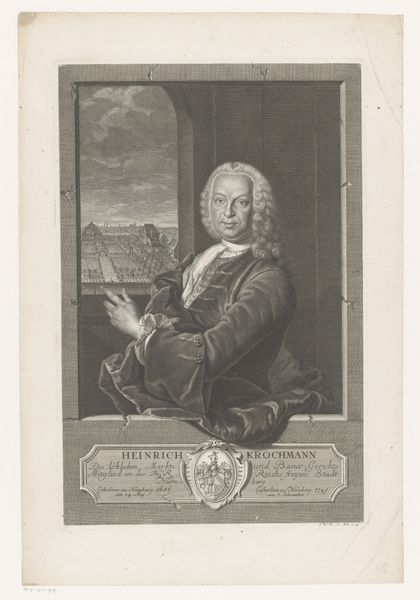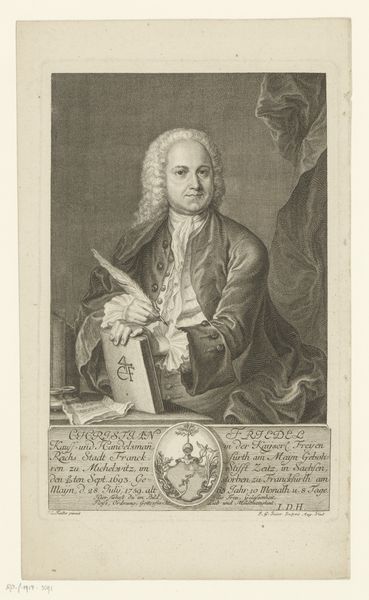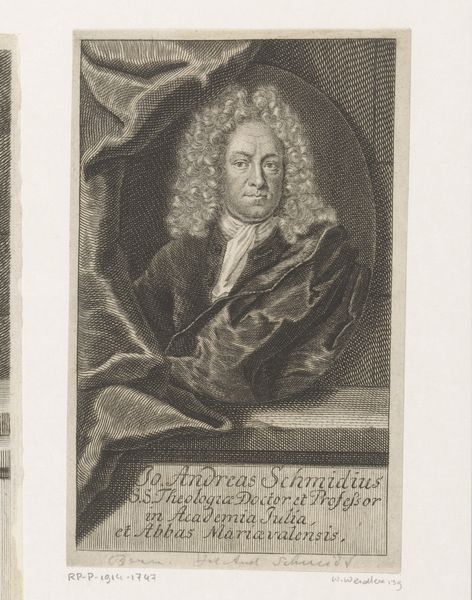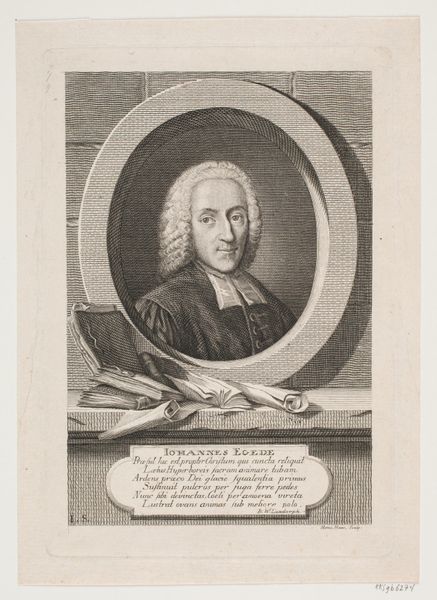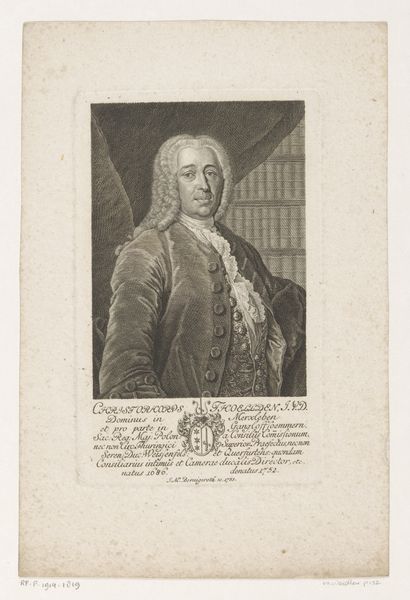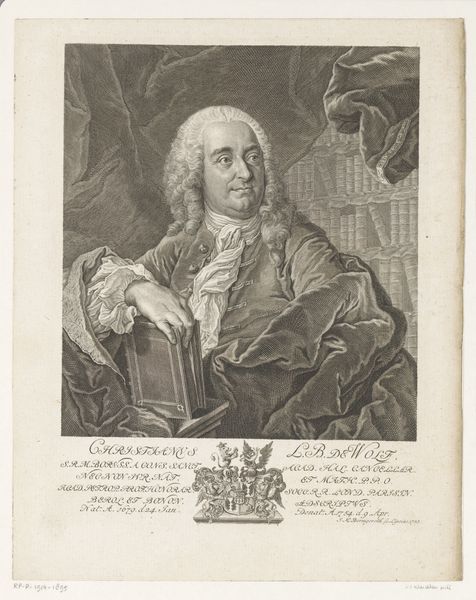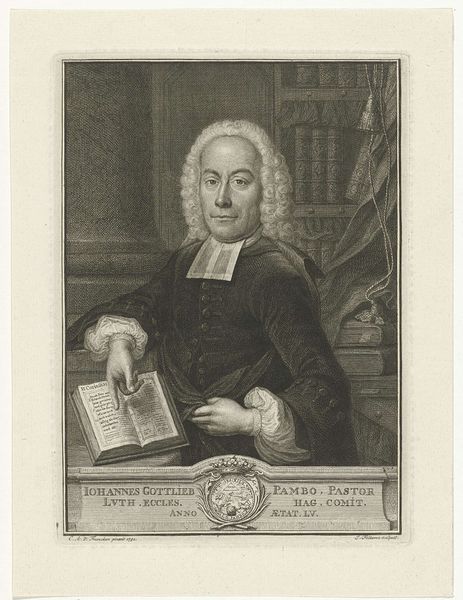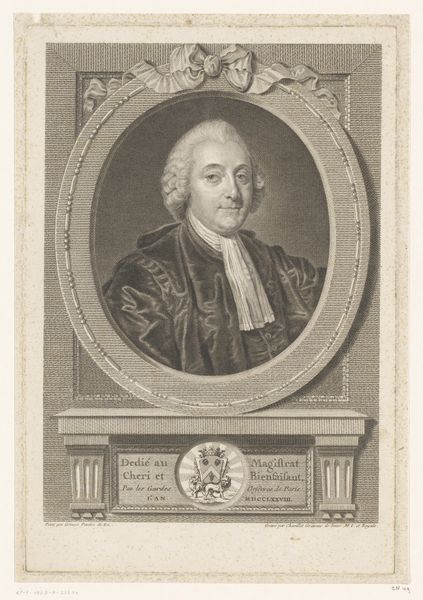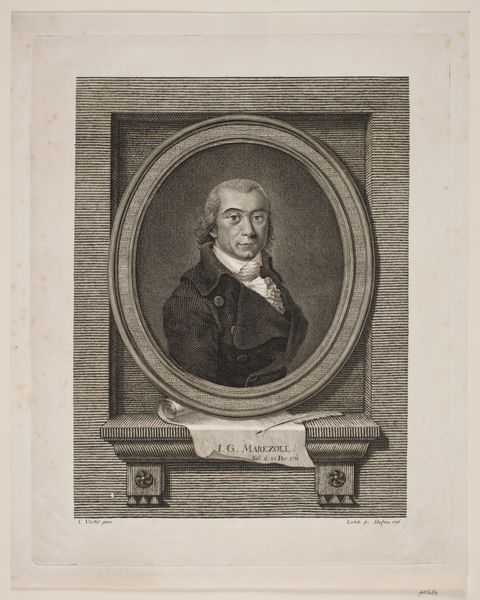
print, engraving
#
portrait
#
baroque
# print
#
old engraving style
#
traditional media
#
history-painting
#
engraving
Dimensions: height 328 mm, width 214 mm
Copyright: Rijks Museum: Open Domain
Editor: This is a print from 1752 titled "Portret Cornelius Valerius Vonck, burgemeester van Nijmegen" by Jacob Folkema, currently housed at the Rijksmuseum. It depicts a rather important-looking gentleman with a quill in hand. I'm struck by how detailed the engraving is. What catches your eye when you look at this piece? Curator: Well, I am drawn to consider the means of production for this engraving and its context as a commodity. Jacob Folkema was a master engraver, and prints like this circulated widely. Consider the social implications – who had access to these images? How did this availability shape public perceptions of Cornelius Valerius Vonck and the role he played? Editor: So, you're less interested in Vonck as an individual and more in the print itself as a manufactured object. I guess I was initially focused on the man in the portrait. Curator: Exactly. While the image presents Vonck, the object reveals a wider web of makers, distributors, and consumers. The engraving suggests skill, precision and labor in service of portraying the sitter as important. Consider the paper, ink, the engraver's tools: each a material element contributing meaning. What does the texture of the paper suggest about the intended audience? Is it coarse and common or refined for wealthier buyers? Editor: That’s interesting. I hadn't considered the materiality of the print as a signifier of class and access. I was so caught up in viewing it as art with a capital "A" that I forgot it was also a mass-produced object. Curator: Precisely! Challenging those boundaries is essential. Looking closely at the means of production helps us understand how art functions within broader social and economic structures. This print shows both the influence and reach possible during the time period through production of "art". Editor: That really changes how I see the image. Thanks! Curator: Likewise. The art becomes less about the person depicted, and more about those who helped and were able to engage with art production.
Comments
No comments
Be the first to comment and join the conversation on the ultimate creative platform.
